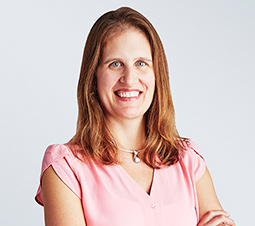Don’t be at the mercy of emotion, fear and uncertainty during this global pandemic.
Emotions are high right now as dental professionals in every field cope not only with business and client concerns during the COVID-19 global pandemic, but also new challenges in their personal lives.
For 18 years, Heidi Barnett has served as a planner for many clients, ranging from solo to multi-doctor practices located throughout the country. Most of her clients have worked with her for 10 years or more, through booming times and some of the worst fallout during the 2008 financial crisis.

The State of Impact
While there are many differences between 2008 and the current pandemic, the most notable is the financial impact of COVID-19 is happening instantly, while the economic hit from the financial crisis came later. It is truly an unprecedented time within the industry.
“Across all practices of every kind, each specialty, small, or multi-doctor, pretty much all of my client’s practices are closed,” says Heidi. “Many are seeing emergencies as needed; however, closure is mandated or recommended across all states.”
With reduced client load and income, smaller start-up and solo practices are in somewhat of a harder spot, simply because they haven’t reached their full potential just yet. Also, the built-in network of multi-doctor practices is comforting for many, providing a sense of camaraderie and support.
There’s always bumps in the road whether that’s unexpected life changes or market volatility. When emotions are high, how can you cut through the noise and forge a path forward?
Heidi’s five recommendations can help you define your situation and remove emotion from business decisions.
Five Ways To Cope
1 – Take control of information.
“Try to look down the road at what your long-term financial goals are instead of just the day-to-day,” advises Heidi. “Information overload will drive you crazy and make you really stressed out. Don’t look at your account every day. Don’t listen to the news all day long. You’ve got to take control over the information you are getting instead of being at its mercy.”
Consider colleagues and advisors that can provide you with trusted information and advice during this time. Whether your employees, fellow dentists, or a financial planner, rely on sources that give you confidence and reliable insights.
“One of the reasons why financial planners are so valuable right now is because we have a long-term relationship,” says Heidi. “Not to brag on CWA, but I think we’ve really done a good job of stepping up and really trying to help guide our clients. Many of them are forwarding our information to their friends and colleagues within their network. We’re all in this together.”
2 – Map your cash flow.
Take a step back and analyze cash flow in both your business and personal finances. Our 90-day action plan to maintain cash flow has an easy three-step process that begins with a serious discussion about cash needs that are variable, fixed and discretionary.
“For your personal finances, it can be as simple as pulling out your credit card statement and reviewing each charge,” explains Heidi. “Also, for your business, understanding what’s in your bank account, comparing it to your monthly need and identifying lines of credit or parts of the CARES act that will supplement.”
In addition to PPP loans or the EIDL program, some practices have looked at ending subscriptions or suspending advertising to better balance cash sources. Some landlords have offered flexibility on rent but other expenses have arisen like teleconferencing services. Only as a last resort, look to investment accounts for drawing money or making loans. Heidi recommends keeping money in your account during the down market so that you’re better positioned for market recovery.
3 – Determine your priorities.
There’s a delicate balance between maintaining your needs now and when your practice safely re-opens. But, it’s important to rank items in your cash flow plan and think about what’s important in the long term.
“We foresee that when practices do return, it may not look exactly the same as before. Think about which clients you will need to reach out to, additional precautions or equipment you may need or even how to accommodate clients with different financing options,” notes Heidi. “Just because you reopen your office doesn’t mean all your patients are going to immediately rush back, and it may take some time to return to full speed.”
4 – Seize opportunities in downtime.
Heidi notes that this unexpected quiet time may be hard: “Dentists are used to being very active and on their feet all day working with patients. They’re much more used to being in charge and not idling at home.”
While patient flow is light, the administrative duties during this time are not. CWA clients are reporting that building, billing and staff issues are now taking up more time. Dental emergencies still arise.
However, use this time wisely to benefit your practice. Heidi’s clients are making the most of their downtime by organizing business records, finalizing estate documents and gathering tax information. Some are even putting a bit of elbow grease into painting and other physical office improvements.
5 – Separate emotions from business decisions.
Remember: without a practice to return to, all this anxiety is moot. Keeping your emotions in check so you can make the right business decisions right now is paramount. If you feel overwhelmed, take a breath or ask for help.
“Everyone feels this pressure to make these decisions now, but sometimes the best decision you can make is to wait a day or two. You don’t have to decide everything now,” cautions Heidi. “Don’t get caught up in the negativity. There is a light at the end of the tunnel.”
Do you need help cutting through the noise and finding a way forward during this time? Our financial planning team can help you navigate this rapidly changing world.














